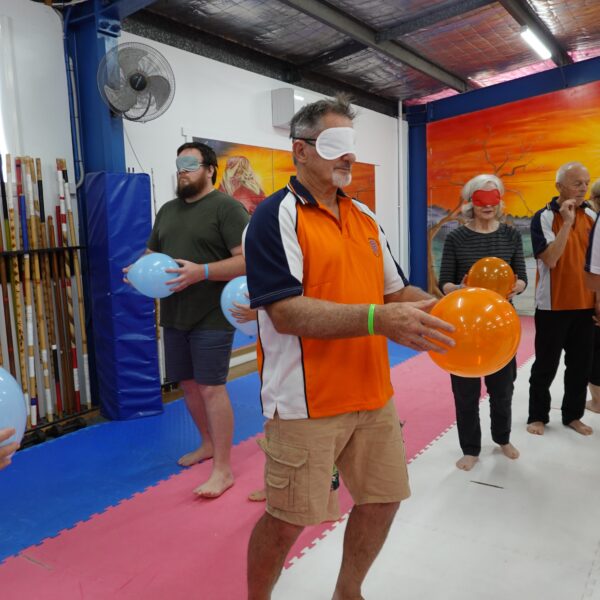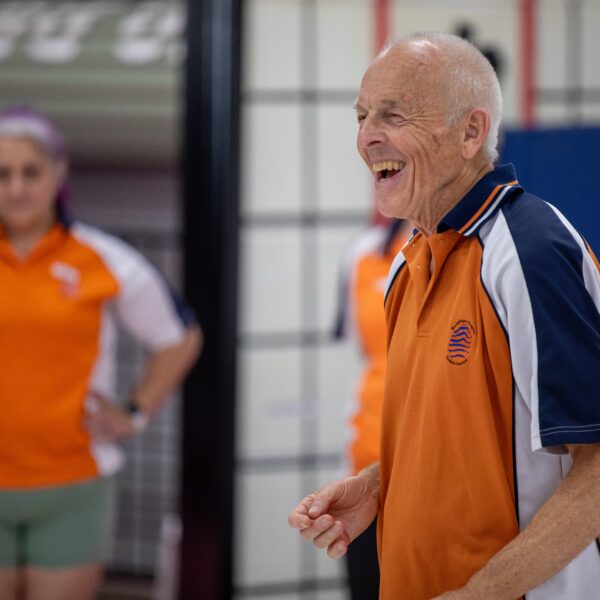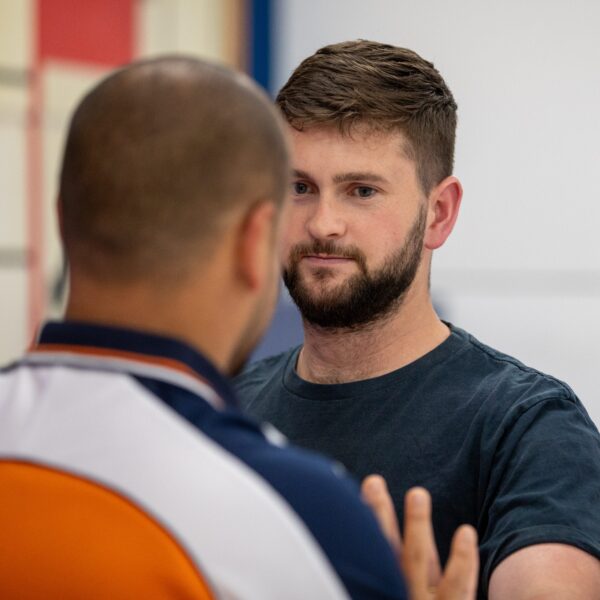Overview
An Australian First
Taught by Founder and Author of the Rock and Water Program, Mr Freerk Ykema and Master Instructor Harriette Modderman
Trauma Training marks a rare opportunity to be trained by the founder of the program and for many of his friends and students in Australia to re-connect with him and the development of the Rock and Water program over the last few years.
Specialised Trauma Training
The training is intended for professionals such as psychologists, teachers and youth workers who work with this target group and may only be used afterwards within the setting in which you are trained.
To participate in the training, you must have completed approved Rock and Water training.
It is therefore mandatory to first follow Rock and Water Basic training to gain a full understanding of the Rock and Water Program before participating in this two-day specialisation. Therefore, when registering, please indicate when and where you previously trained.
Rock and Water Training addresses 1.1.2, 1.2.2, 4.1.2, 4.3.2, and 4.4.2 from the Australian Professional Standards for Teachers.
Please Note: TQI endorsed hours can only be accrued by attending workshops run by Rock and Water Australia, however teachers seeking identified hours only may attend courses in any state.
The Rock and Water Grief and Trauma course is highly relevant for anyone working with young children and adults (primary/high school settings, OT, speech, counsellors, mental health workers, etc.). I thank Freerk, Hariette and Brian for bringing this program to life and cannot recommend it more highly to others.
Jo Pearson
Classroom Teacher



More Details
The Rock and Water program is a universal intervention that focuses on all students from four to 18 years old in regular and special education. In addition, special attention can be paid to pupils with specific support needs for which various Rock & Water specialisations have been developed. One of these is the specialisation Rock & Water Trauma and Grief.
The starting point of the psychophysical Rock & Water methodology is the fact that our primary sense of self is determined by a vital connection with our physical consciousness (body awareness). Personal development, self-regulation and healing processes depend on being aware of, and being able to regulate our emotions and feelings that express themselves in the body. This fact makes it clear why the psychophysical Rock & Water method can also be used with children, young people and adults who have had, or are still struggling, with traumatic experiences.
Trauma has a psychophysical impact on the person facing it. It can leave deep traces in the head (cognition, thinking, language, meaning), heart (emotion/feeling) and body (body experience and interpretation). Optimal guidance for children, young people and adults who have been confronted with traumatic experiences therefore ideally consists of a psychophysical approach in which both head and heart and body experience are central. In this way, the psychophysical Rock & Water method can contribute to optimal, complementary guidance of the whole person in the hands of the experienced, well-trained psychologist.
Trauma adversely affects the feeling of security and the ability to make contact with one’s own feelings and strength. As a result, the ability for social contact and social integration can also be blocked, resulting in feelings of deep loneliness. The surrounding world then seems to move too fast and has less meaning, so trauma can give the feeling of being detached from time and also from ones community.
The use of drugs (such as Prozac or its derivatives) causes a decrease in the activity of the Amygdala (in the limbic system) which increases the feeling of safety. However, focusing attention on internal bodily processes such as breathing, muscle tension in shoulders/back/abdomen/knees, the experience of rest and strength in the abdomen, the experience of a vital connection between body, emotions and consciousness has the same effect: the activity of the Amygdala decreases and feelings of relaxation, tranquility and security increase. This path can initiate a healing process in which the client takes matters into his own hands and/or learns to take matters into his own hands and, in collaboration with a psychologist or other expert, learns to go (rediscover) a path that leads to healing and self-regulation.
Instead of creating a dependency on medication, and thus perhaps also ignoring and/or covering up the underlying psychological problems of the client, a psychophysical approach can therefore also be central to the counseling of clients. In addition to the skills mentioned above, we also focus on developing important skills that contribute to recovery and self-regulation, and we try to rebuild a meaningful life with moments of happiness, no matter how difficult and unattainable that may seem at times.
The starting point in the guidance is to make contact with the body to promote feelings of peace, relaxation and calmness. In addition, the focus is on developing a calm and strong psychophysical foundation that creates feelings of safety and competence to always return to in moments of stress. This is the first and perhaps the most important step towards self-regulation and healing. From this safety-enhancing psychophysical basis, it is easier to create moments of peace and relaxation in order to come to self-reflection and to initiate a healing process. Important skills are making contact with and learning to use one’s own (inner) strength (physical and mental). In addition, getting to know and regulating one’s own emotions and feelings, the development of more self-knowledge, feelings of competence and self-confidence, and the development of social skills using the Rock & Water frame of reference. These skills make it possible step by step, each at their own pace, to reconnect, to develop new relationships and to function again in social networks.
This two-day training focuses on the basic skills and concepts of the Rock & Water program related to the specific developmental tasks of children and young people who have had to deal with trauma and/or the associated loss experience (mourning) in their lives. During this training, the participants learn how to use the various Rock & Water skills together with other, new exercises to address these children and young people on their own resilience. Rock & Water contributes to the normalisation of the symptoms of trauma that trigger activation of stress responses. We do this by addressing restorative action patterns so that hindering survival strategies can be neutralised safely and step-by-step. In addition to theoretical underpinnings about trauma, trauma reactions and mourning, we will mainly work practically with different working methods during the training.
Interested in the Rock & Water Program
Speak with our team about your course needs
